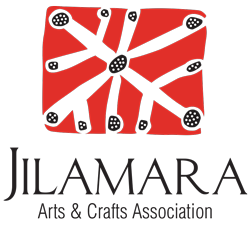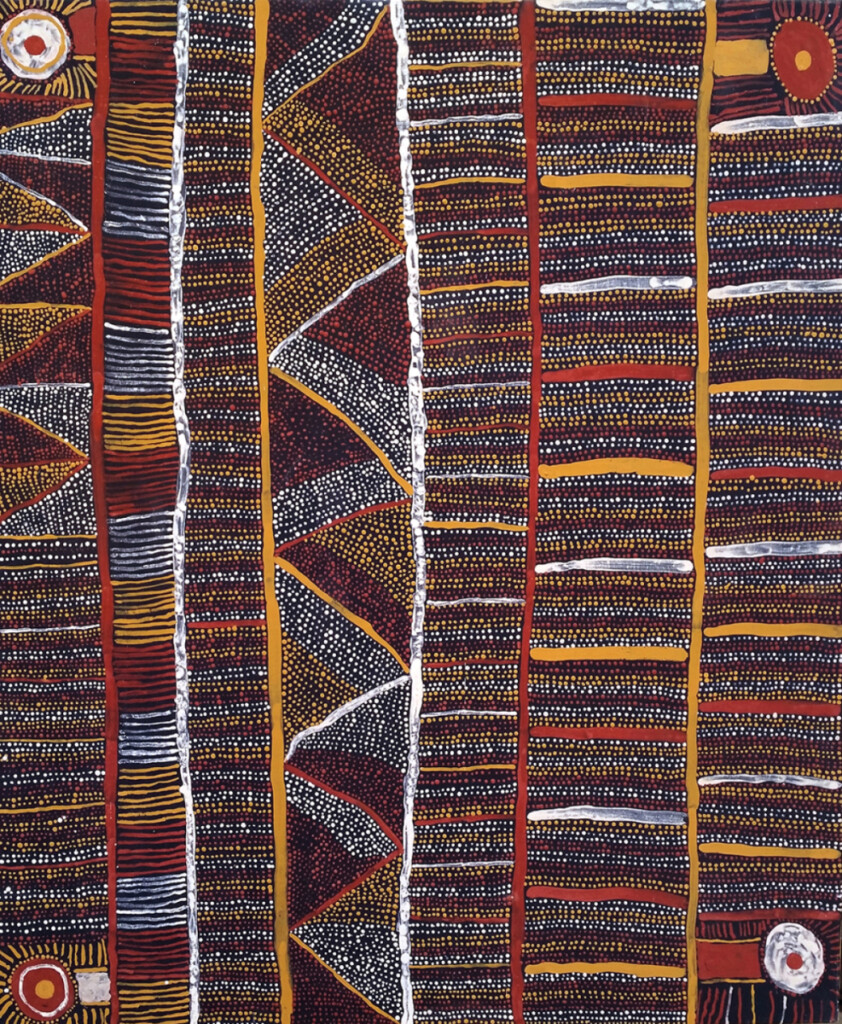Kitty Kantilla
Skin: Anjiluwi (Rain)

Kitty Kantilla, is known as the ‘first old lady of Jilamara’ and was a founding member of Jilamara Arts & Crafts. Having passed away in October 2003, Kitty’s legacy survives her at Jilamara and throughout the Australian Contemporary art world.
Kitty once said of her art, “The jilamara that I do, it’s my father’s design. I watched him as young girl and I’ve still got design in my head. As a young girl, when my sister passed away, I watched him. When he died, I did the same design, right through Nguiu [Paru], I kept painting. When my husband died in Adelaide, they wanted to give me a widow’s pension but I said, ‘No, I’ll work, make jilamara, carving, make my own living’. Right through all the way, working everyday! When we gathered logs for carving, there was no transport! We carried them on our shoulder, walking, having a rest, walking a long way, heavy work. We worked at home [Paru], with no chainsaws, just tomahawk, carving, hard work. Then we would take the carvings by canoe, paddling across to Nguiu to sell them.”
Kitty was born on the eastern side of Melville Island where she lived with her father and mother. Everyone went out hunting and gathering.
During World War II, when she was a little girl still crawling, one white fella named Mr Moore got all the people together and brought them to Paru. They worked on a farm growing fruits like banana, cashew, coconut and mango. Whilst living at Paru, she worked as an artist carving. Artists at Paru took their work to Bathurst Island across the (Aspley) strait to sell. With the money they made they bought food like flour, sugar, tobacco and tomahawks and calico.
Everyone went out and helped each other to collect Ironwood. During that time they were also eating bush tucker, collecting food from the mangroves like crabs, mangrove worms, mud mussels, longbums and periwinkles.
People lived in tin sheds. To wash clothes, they didn’t walk to the creek (near the bridge). The men dug a well – that’s the only water they survived on, for washing their clothes, having showers and for drinking water. The men went in their dugout canoes hunting for turtle and dugong. Others went fishing and spearing stingray, crabs, and fish.



